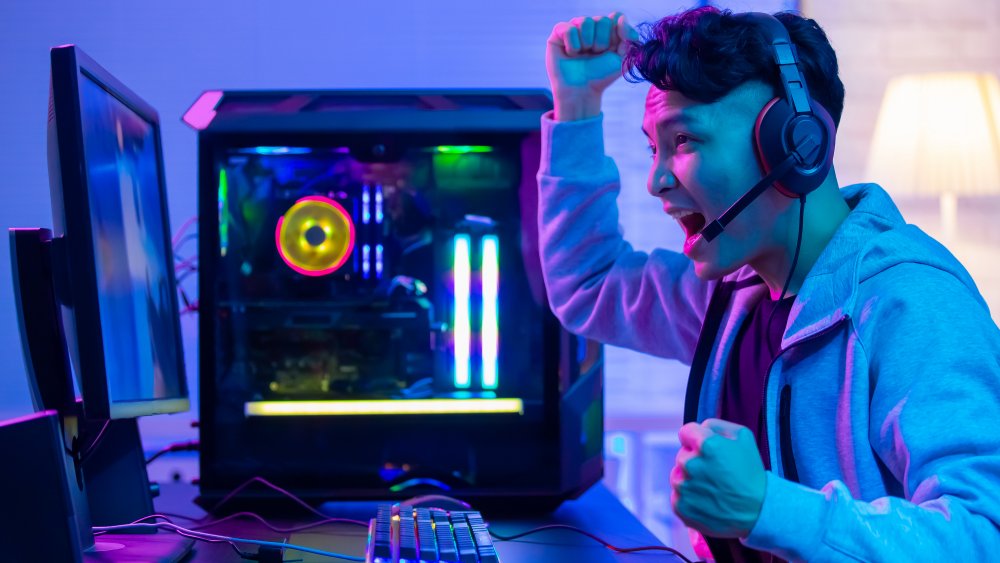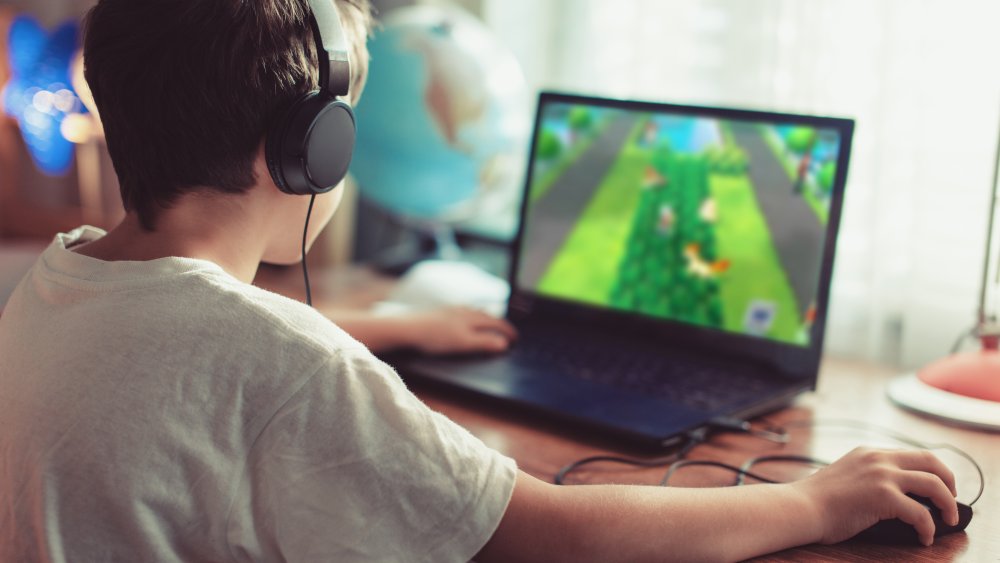How Video Games Can Benefit Kids In A Surprising Way During The Pandemic
"Go play your video games," said no parent ever. Except, new research suggests that perhaps we should — at least when those video games are interactive. A study published by the American Psychological Association found that children in grades 7 through 10 who played games with each other virtually reported fewer feelings of loneliness than those who played alone. Based on these results, experts are suggesting we reconsider our notion of the "lonely gamer," and instead recognize that there is social value to video games — especially in the face of a pandemic, where social distancing is making it difficult for teens to hang out in the usual ways. With no pep rallies or homecoming, it's time to improvise!
"Game play is social, although it doesn't always have the reputation of being so," Susan E. Rivers, Ph.D., social psychologist and expert in social and emotional learning, told Healthline. "When we play with real people, we have to be thoughtful about how we're competing or collaborating, and we have to deal with the fallout if we're less than gracious," she explained, adding that interactive gaming can provide "the opportunity to share our triumph and joy with others, amplifying those positive experiences."
Gaming can also have academic benefits for kids
Not only are interactive games a decent substitute for face-to-face hang-outs during a pandemic, the ones that have an academic spin may help make up for that lack of in-person education, according to Stanford mathematician Kevin Devlin, who co-founded a studio for academic video game creators. "If designed suitably, video games are activity simulators with a dopamine reward system. When someone plays any game, they are learning something," Devlin told Forbes. "The challenge for the math educator is to make that learning be about doing mathematics."
The benefits of academic video games go beyond math. Assassin's Creed helps transform children into history buffs, Batman helps children understand narratives and other literacy principles, and games in the Portal franchise actually help teach physics, according to The Conversation. Gaming can even help children overcome certain learning disabilities, including dyslexia and lack of attentiveness, Psychology Today reported. The magazine also noted that gaming can help with age-related mental decline, so go ahead and invite Grandma and Grandpa to game with your child for some multi-generational, socially distant interaction that will benefit everyone playing!


